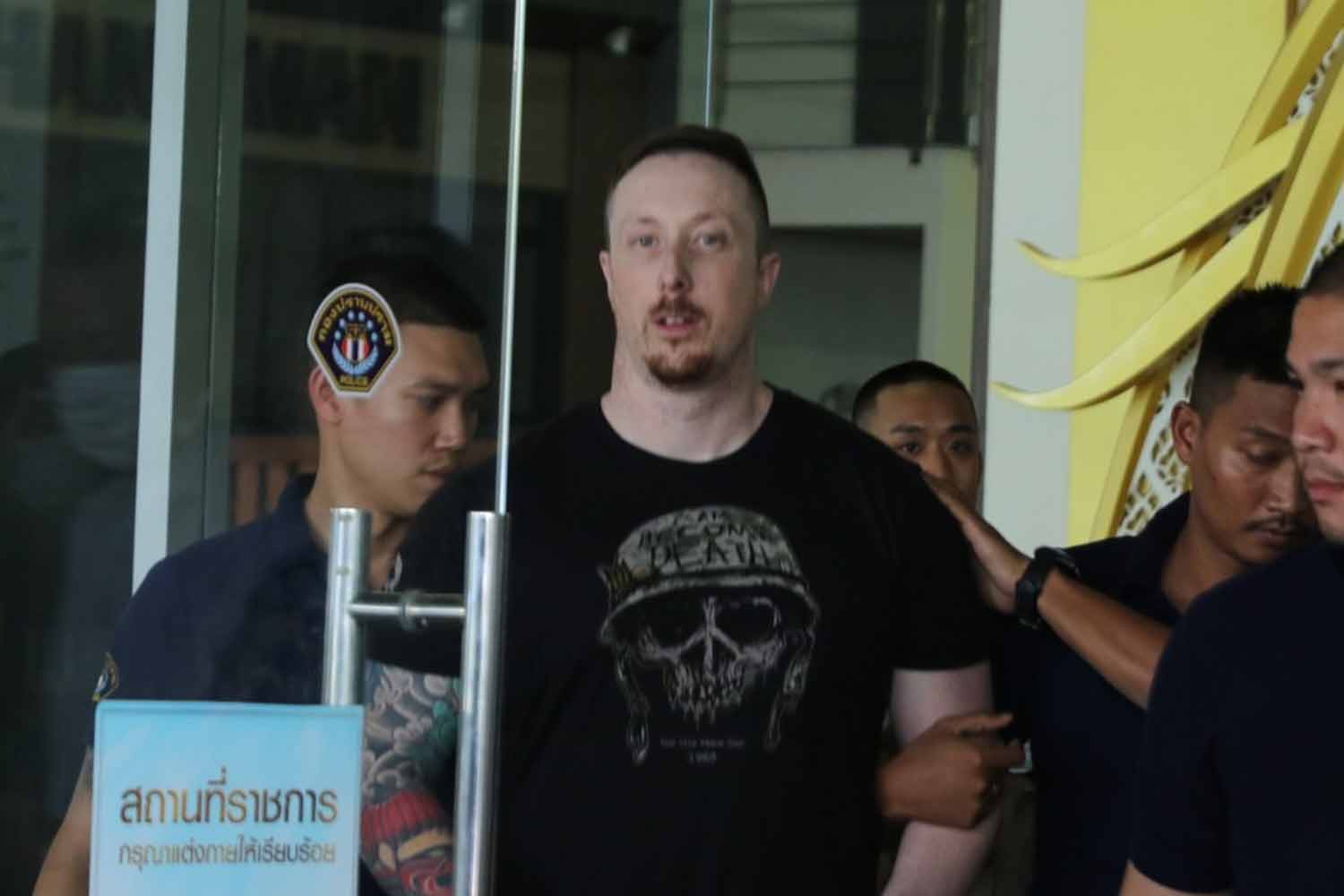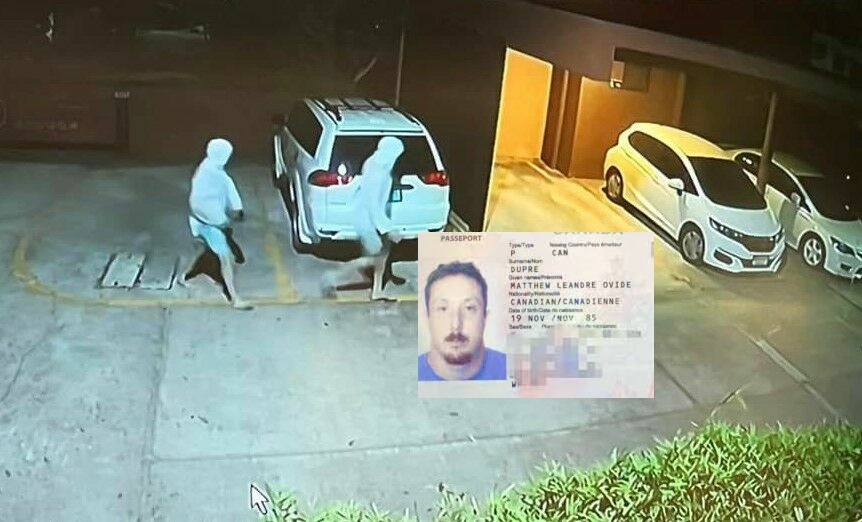News
Canadian Matthew Dupre Extradited to Thailand to Face Murder Charge

An Alleged contract killer and former Canadian soldier Matthew Dupre has been discreetly extradited from Canada to Thailand to face a murder charge for the shooting of Canadian criminal Jimi Sandhu in Phuket on February 4, 2022.
Last week, a special Airbus A340 flight carrying 10 members of the CSD’s Hanuman special weapons and tactics unit led by Pol Col Wichak Tarom, a deputy CSD commander, and 30 members of a Royal Thai Air Force special operations unit took off from Don Mueang airport for Vancouver, Canada, to bring Dupre back to Thailand.
The special flight, which included Dupre, returned to Thailand and landed at Don Mueang airport’s Wing 6 terminal at 11 p.m. on Sunday. The airport was closed temporarily due to strict security. Around 30 other Hanuman unit members and RTAF ground security met the flight.
The suspect was driven from the airport to CSD headquarters in a motorcade. His incarceration is now being monitored by the Central Investigation Bureau.
On February 4, 2022, at approximately 10.30 p.m., two foreign men shot Canadian gangster Jimi Singh (Slice) Sandhu dead in the parking area of his rented beachfront villa on Rawai beach in Phuket’s Muang district. A security camera captured the killers entering the villa.
Matthew Dupre was recognised as a suspect by Phuket and CSD police investigations.
On February 11, 2022, the Phuket Court issued a warrant for the arrest of Dupre and his accused accomplice on counts of premeditated murder, illegally possessing guns and ammunition, and carrying and using the guns in public.
According to a police investigation, the two suspects departed Thailand for Canada on February 6th.
On February 15, the Royal Thai Police international affairs section issued a letter to the Attorney General’s Office, along with the arrest warrants. Under the Extradition Act of 2008, the OAG was asked to cooperate with Canada for Dupre’s extradition.
The OAG then took the desired measure.
The Alberta Provincial Court in Canada issued an arrest warrant for Matthew Dupre at the request of the Alberta Attorney General’s Office.The Royal Canadian Mounted Police apprehended Dupre on February 20, 2022, at his house in Sylvan Lake, Alberta, near Red Deer.
The Court of Alberta in Edmonton later approved Dupre’s extradition to Thailand under Canada’s Extradition Act of 1999. Gene Lahrkamp, the second wanted suspect in the investigation, died in a tiny plane crash in Canada in May 2022.
The Extradition Act of Canada
The Extradition Act of Canada is a law that governs the process of extraditing individuals from Canada to foreign countries, as well as from foreign countries to Canada. The current version of the Extradition Act was enacted in 1999 and has undergone subsequent amendments.
The purpose of the Extradition Act is to establish a legal framework for extradition, which is the formal process by which one country requests the surrender of an individual located in another country for the purpose of facing criminal charges or serving a sentence.
Here are some key features of Canada’s Extradition Act:
1. Dual Criminality: Extradition can only be granted if the alleged conduct for which extradition is sought is considered a criminal offense in both Canada and the requesting country. This principle ensures that a person cannot be extradited for an act that is not considered a crime in Canada.
2. Extraditable Offenses: The Act provides a list of offenses that are considered extraditable, which includes a wide range of serious crimes such as murder, terrorism, drug trafficking, and fraud. The list can be expanded through bilateral treaties or multilateral agreements.
3. Extradition Process: The Act outlines the steps involved in the extradition process, including the submission of an extradition request, judicial review of the request, and the surrender of the individual if the extradition is granted.
4. Judicial Involvement: The Act emphasizes the role of the judiciary in the extradition process. Courts are responsible for reviewing the evidence presented by the requesting country to determine whether there is sufficient evidence to justify extradition. The courts also consider factors such as human rights and the possibility of the death penalty or cruel and unusual punishment.
5. Ministerial Discretion: The Minister of Justice in Canada has the final authority to make the decision on whether to surrender the person for extradition after the judicial process is complete. The Minister can refuse extradition in certain circumstances, such as if there are concerns about the person’s safety or if the request is politically motivated.
6. Appeal Process: The Act allows for an appeal process, where the person sought for extradition can challenge the decision through the Canadian courts, up to the Supreme Court of Canada in some cases.
It’s important to note that the Extradition Act is subject to international treaties and agreements, which may modify or supplement its provisions in specific cases. The Act provides a legal framework to ensure that extradition requests are handled in a fair and transparent manner while protecting the rights of the individuals involved.
Mastering Thailand’s Visa Policies
Mastering Thailand’s Visa Policies: Avoiding Overstaying Penalties
































